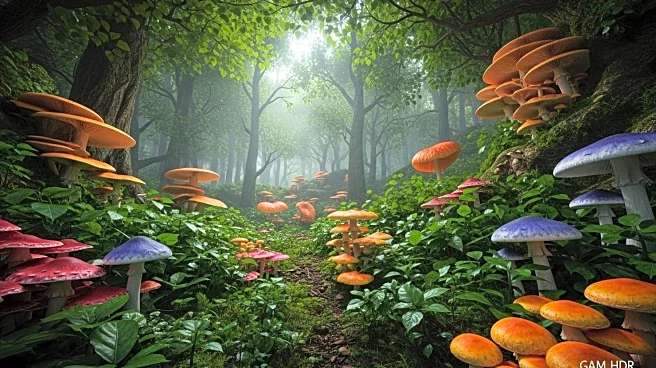What's Happening?
New research from the Okinawa Institute of Science and Technology, published in Nature Ecology & Evolution, suggests that fungi played a crucial role in the development of ancient terrestrial ecosystems, predating the emergence of land plants by hundreds of millions of years. The study, led by Professor Gergely J. Szöllősi, indicates that fungi diversified well before land plants, contributing to the evolution of complex multicellular life. The research utilized a molecular clock and horizontal gene transfer (HGT) to establish a timeline for fungal evolution, revealing that fungi were present and interacting with algae long before plants colonized land.
Why It's Important?
The findings challenge previous assumptions about the timeline of life on Earth, suggesting that fungi were instrumental in preparing the planet for the colonization of land by plants. By breaking down rock and cycling nutrients, ancient fungi may have created the first primitive soils, altering the terrestrial environment and paving the way for plant life. This revised timeline highlights the importance of fungi as ecosystem engineers and their role in the evolution of life on Earth, offering new insights into the history of terrestrial ecosystems.
What's Next?
The study opens new avenues for research into the interactions between fungi and algae in ancient ecosystems, potentially leading to a deeper understanding of the evolution of life on Earth. Further exploration of the genetic and fossil evidence could refine the timeline of fungal evolution and its impact on terrestrial ecosystems, providing valuable insights into the history of life on our planet.
Beyond the Headlines
The research underscores the complexity of evolutionary processes and the role of fungi in shaping Earth's ecosystems. It highlights the need for interdisciplinary approaches to studying ancient life, combining genetic, fossil, and geological evidence to unravel the history of life on Earth.









